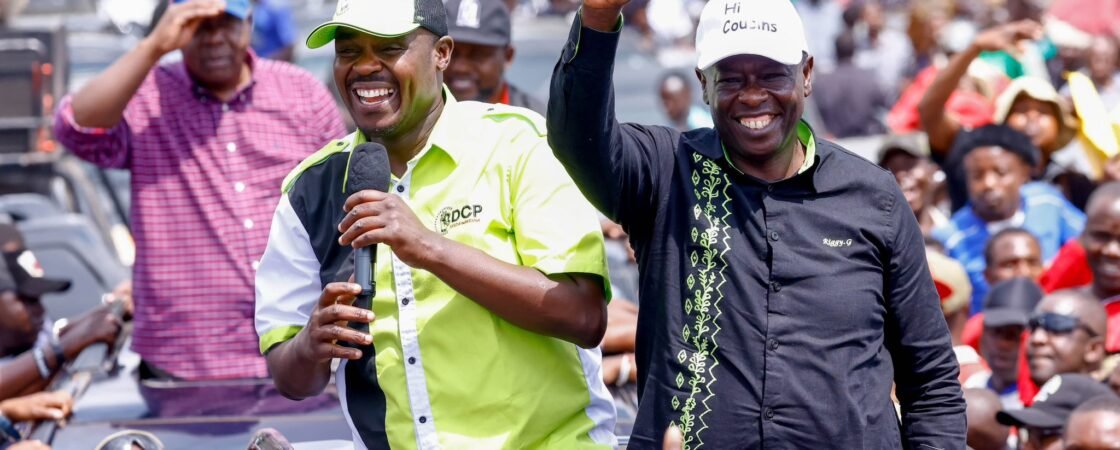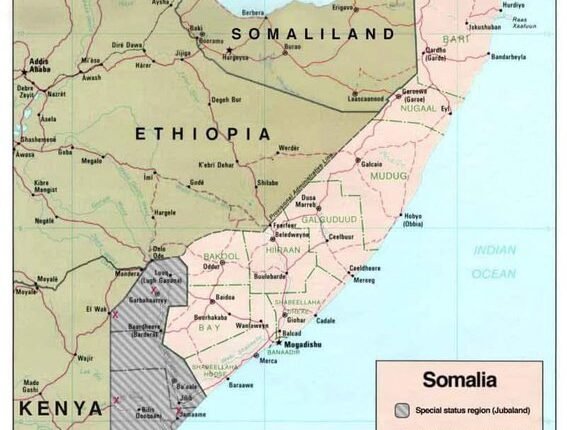In a stunning, record breaking gesture that has sent Kenya’s political landscape into shock, impeached Deputy President Rigathi Gachagua recently announced his intention to fly out to the United States after being impeached in October 2024, sending an explosion of public outcry, media scrutiny and political rumour. His bluff daring the authorities to arrest him at the airport has transformed a constitutional crisis into an acutely high stakes game of politics.
The row between President William Ruto and Gachagua is merely another chapter in Kenya’s chequered history of President and Deputy-President squabbles. A 2024 analysis by The Conversation noted that such squabbles are nothing new: from Jaramogi Oginga Odinga’s rift with Jomo Kenyatta during the 1960s, to the tense Moi-Saitoti of the 1990s, power sharing within the executive ranks in Kenya has run towards confrontation over working together.
But Gachagua’s impeachment officially sanctioned by the Senate in October 2024 takes this trend further. Should it be confirmed and not overturned by the courts, it would make him the first Kenyan Deputy President to be constitutionally removed from office, establish a historical precedent and provoke live issues regarding democratic resilience, internal UDA (United Democratic Alliance) stability and possibilities of ethnic coalition politics in Kenya.
Gachagua’s fall was swift. Once, Gachagua was Ruto’s outspoken ally and key figure in orchestrating the Mt. Kenya region support before the 2022 general election. Gachagua gradually became estranged from the policies of State House in 2023 and 2024. Differences in the public domain over budgetary allocations, revenues share, and claims of exclusion from essential decision making ratcheted up into an all out conflict.
By mid-2024, Gachagua was an outspoken internal critic, most often accusing the government of losing its initial support base and hustler betrayals. His open defiance of President Ruto’s economic and political policies fueled public tensions and created speculation of a likely UDA split. His later removal by Interior CS Kithure Kindiki on November 1, 2024, indicated the government’s willingness to tighten control and weed out dissenting voices.
In a passionate speech transmitted live on different platforms, Gachagua said he would fly to the United States and dared the government to arrest him at the airport. The speech leaned on themes of betrayal, persecution, and sacrifice in the nation’s behalf words reminiscent of Kenya’s most volatile political crises.
Political commentators were quick to liken it with the 2007-2008 post-election crisis, when power struggles among elites bled into the public sphere, resulting in mass protests and ethnic violence. During that time, politicians such as Raila Odinga and Kalonzo Musyoka too used populist language and street demonstrations to project themselves as victims of a fraudulent system.
Though no peer-reviewed analyses directly link such political theatre to election outcomes exist, public sentiment and anecdotal evidence suggest that the display of rebellion against political harassment tends to gain sympathy especially where a leader is seen as a local hero or figure of resistance.
Gachagua’s matter is now at the intersection of legal process and politics as theater. The Constitution provides for the impeachment of a Deputy President due to gross misconduct, violation of the Constitution, or abuse of office. The Senate vote affirmed that threshold was crossed, but Gachagua finds fault in both the process and motives, framing it as political witch hunt instead of constitutional protection.
The judiciary, which is already overworked by recent election petitions and institutional censure, will soon have to decide whether the Senate vote was constitutional and whether Gachagua continues to have legal immunity or grounds for reinstatement.
Meanwhile, Ruto’s team is reported to be working hard to consolidate its hold by forging new deals in the Rift Valley, Coast, and Northern Kenya, and quieting opposition within Mt. Kenya a territory now divided between pro-Gachagua die hards and emerging voices aligned with Kindiki and other leaders.
The political removal and impeachment of Rigathi Gachagua could redefine Kenya’s politics in 2027. His removal could open doors for President Ruto to reboot his succession strategy, possibly promoting pillars like Musalia Mudavadi, Kithure Kindiki, or even Ndindi Nyoro as central figures.
In the meantime, Gachagua can use his exile should it materialize to construct a diaspora-backed opposition front, mobilizing disgruntled youth, Mt. Kenya voters, and frustrated voters who believe that the Ruto administration has deviated from its original promises. Social media already signals such mobilization in the #GachaguaSpeaks and #JusticeForRigathi hashtags.
Whether that sympathy will translate into electoral clout is doubtful, but the impeachment of Gachagua has clearly exposed deep fissures in Kenya’s executive branch and reminded voters that its political marriages there turn into ice quickly.
The story of Rigathi Gachagua is more than a battle between one man the country’s stress test. His impeachment and possible self-suspension are the embodiment of the tension between politics and constitutional law in Kenya. With 2027 looming, choices made today will decide not only party structure but people’s trust in democratic processes.
In the end, the question is: Was Gachagua a rogue deputy sabotaging the presidency or a whistleblower to the government.
Kenya’s Deputy President Impeached, Threatens to Flee Amid Power Struggle



